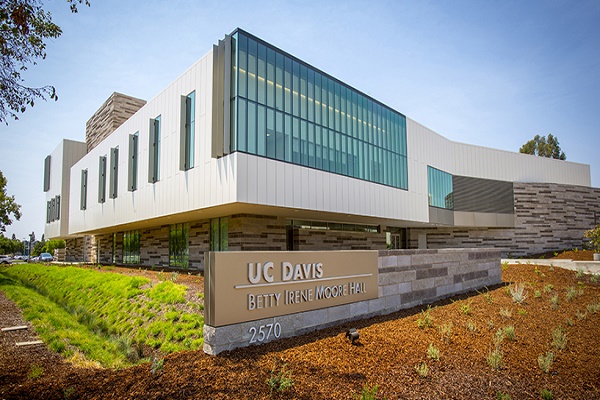University of California, Davis: Faculty Member Examines Black Suburbs
This month’s guest on Chancellor Gary S. May’s Face to Face program is researching a topic of particular interest to the chancellor: the kind of place where he grew up.
Orly Clerge, an assistant professor of sociology, is studying how suburbs change when Black residents “infuse their identity, their politics, their economic rationales into the overall structure of these places.” Her interview with the chancellor is available today (Oct. 26).
“Black suburbs have burgeoned ever since the 1960s,” Clerge said. “What I do in my work is really ask, well, how did Black suburbs come to be? And once these Black suburbs came to be, how exactly do the different types of Black nationality groups who are within these settings make these spaces into places?”
It’s a series of questions she answered in her 2019 book The New Noir: Race, Identity, and Diaspora in Black Suburbia, which examines areas in and around New York City.
“I grew up in the 1960s and ’70s in a community that became Black suburbia due mostly to white flight from that suburb,” said May, speaking of his hometown of St. Louis. “It’s fascinating to me that you’re studying this.”
Purple graphic with text “Face to Face with Chancellor May”
The chancellor said he was curious whether living in Black suburbs was a positive or negative experience. Clerge said it was a mixed bag: While buying a home can be a pathway to building wealth, Black suburbs are often unequal to white suburbs.
“So many of the challenges that they face in cities follow them to suburbia,” she said of Black residents, noting challenges with access to education, voter turnout and policing.
Clerge’s research and published work also includes a look into the lives of faculty members of color. She co-edited a 2017 collection of letters from faculty members discussing challenges they face in academia: “Stories from the Front of the Room: How Higher Education Faculty of Color Survive and Thrive in the Academy.”
She gave an example of a Latinx faculty member who had less time for research once he began a tenure-track position, where he became the “token Latinx faculty member” asked to serve on committees and mentorship programs.
“The demands for service are higher upon him, but the provision of research funds for him to be a productive scholar were very limited,” Clerge said. “In the book, we highlight those experiences to demonstrate that there is a systematic problem across universities and colleges that needs to be addressed because faculty of color bring so much to the university in terms of expertise, in terms of world view and experiences.”
May recalled what it was like to be one of three Black faculty members in a department with more than 100 faculty members, and said he was thankful UC Davis has been so active in the UC Office of the President’s Advancing Faculty Diversity grant program.
May and Clerge’s chat also touched on topics as varied as how Aggie Square organizers are ensuring that development does not worsen gentrification in Oak Park and Clerge’s favorite foods and place in Northern California. The full episode is available above.

